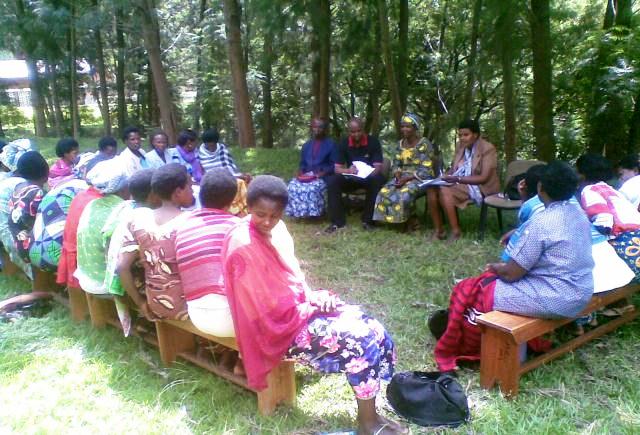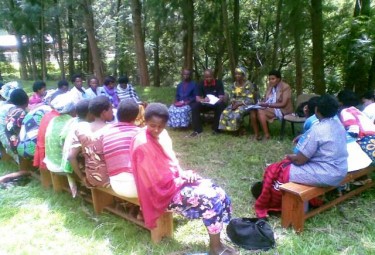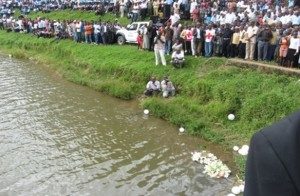
Children from Genocide rape to get FARG assistance.
Jean Damascène Niyitegeka, The Rwanda Focus.
12th August 2013.
The repercussions of 1994 Genocide that killed more than a million people are still felt in countless ways today. Some of the survivors of rape during the Genocide have later given birth to children face their past daily.
These mothers have fruitlessly appealed for support to their children in order to help them receive education and lead a stable life. They have repeatedly requested to be integrated in the Assistance Fund for Genocide Survivors (FARG) beneficiaries. This has not been possible due to the law establishing the Fund.
The law establishing FARG highlights that it supports and assists the survivors of Genocide against Tutsi committed between 1st October, 1990 and 31st December, 1994. Yet, all children born as a result of rape during the genocide were born after this date.
“When we would stand to request help for our children, our neighbors used to shout saying the child is from Interahamwe,” says Mukamana, (name has been changed to protect her identity) an HIV-positive mother from Bugesera whose child is now in senior four secondary school.
The mothers, whose children are now mostly in secondary school, have been challenged since cannot receive assistance for their children from FARG or any other government programs.
While waiting for government intervention, these children are receiving help from Foundation Rwanda through Survivors Fund (SURF), a British-based NGO. The NGO pays school fees for their secondary education. Yet, the support is not enough for these children and their mothers.

SURF has provided counseling services to these mothers who were psychologically affected rape and their resulting children.
Emilienne Kambibi, the counselor in SURF says the NGO is now assisting more than 800 children whose mothers revealed what happened to them, but added that there might be more mothers who have been raped and have kept quiet, fearing ridicule and stigmatism from society.
Some of these mothers, who, through the counseling, have been able to tell their story, have been requesting for the integration of these children in FARG beneficiaries.
“Once we were selected to be assisted, our neighbors said, ‘his older brothers or sisters are assisted by FARG; let others get this chance.’ If we turn to FARG, they say these children are not concerned by the law establishing it,” tells Mukamana.
Mukamana adds that it has been very difficult to explain to children why they cannot be assisted like their older siblings.
Revision of the law
Though the students are now facilitated in their education by Foundation Rwanda, the assistance is not enough and not sustainable. Foundation Rwanda provides mainly school fees to these children but not for needs beyond that. These children have the right to go beyond secondary school to university.
Although the law establishing FARG does not recognize these children, mothers suggest another possible solution to the situation.
“The government should establish another fund which should take these children into consideration and us who, apart from losing our family members and neighbors in genocide, have been raped and had children in unconceivable ways,” says Kampire (not real name), another rape victim from Nyamata sector of Bugesera district, who defines the problem as very big.
After a long time of advocacy, now it seems that their future holds promise. Théophile Ruberangeyo, the executive secretary of FARG, told The Rwanda Focus that advocacy by the women has resulted in the revision of the law establishing the FARG. This recent decision has yet to be made public.
He assures that although the new law does not recognize these children, it at least increases the assistance to their mothers so that they can afford to raise these children.
“Apart from getting assistance as well as other genocide survivors, these mothers will get another additional help so that they can be able to help these children”, Ruberangeyo said. “If we use to give her Frw 10,000 as a survivor, now she will get another additional amount”, he adds.
Ruberangeyo, who revealed that even the Ministry of Local Government has another special program for these children as vulnerable, reiterated that, from this fiscal year these mothers will get grouped and FARG will fund projects to uplift their living conditions and help them provide for their children.

